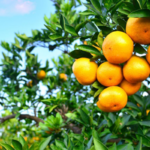The U.S. remains the leading supplier of agproducts to Japan

After establishing very strict restrictions to prevent the spread of Covid-19, Japan has reopened its trade market, signaling great opportunities for importers.
With a population of over 125 million, and a lack of natural resources, including agricultural land, Japan’s food market depends largely on imports. It also makes the country susceptible to external pressures and conflicts that occur abroad, for example, the war in Ukraine.
Price increases caused by shocks to the supply chain have impacted domestic purchasing power. However, according to the USDA, since the domestic food supply depends so much on imports, agricultural imports have been resilient to the uncertain global economic environment.
“In 2022, Japan imported $70.2 billion of agricultural products, a 16.4-percent increase from pre-COVID 2019 and also surpassing record-level agricultural imports of 2011 and 2012. Although rising food prices contribute to higher unit prices, putting downward pressure on real income and purchasing power, Japan is an advanced economy where demand for high-quality food is relatively stable compared to emerging economies,” said the USDA in a report.
The U.S. remains the main supplier of agriculture supplies to Japan with $14.6 billion of agricultural products exported in 2022.
Agreements to maintain trade relations
In recent years, both countries have signed several agreements and partnerships to guarantee market access and competitiveness for U.S. products.
In 2020, both countries implemented the U.S.-Japan Trade Agreement (USJTA), allowing U.S. agricultural exporters to remain competitive, Japan agreed to reduce or eliminate tariffs on about 600 agricultural tariff lines.
The consumption of processed fruit has increased in Japan, especially among younger generations. Longer shelf life along with a year-round supply of multiple fruits have made this product more appealing to consumers.
In this market, competition is intense, because many countries have focused their production on these products.
However, the report concludes that “given U.S agriculture’s reputation for safety and reliability, the United States is well-positioned to continue as the leading agricultural product supplier.”








































